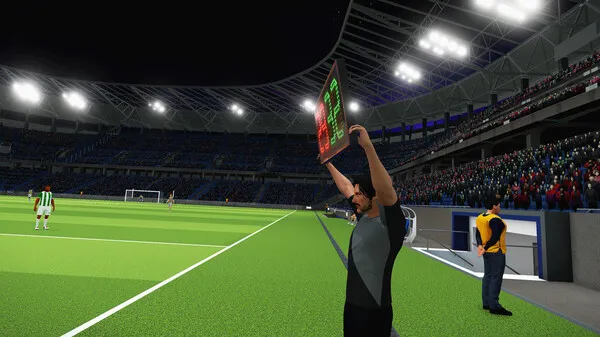Football Life Simulator is not just a game; it’s a full career journey packed into a digital experience. Unlike typical football titles that focus only on playing matches, Football Life Simulator allows players to build a football career from scratch, guiding choices both on and off the pitch. It mixes strategy, resource management, and role-playing, making it unique and deeply engaging.
Learning how to navigate its layers of decision-making—contracts, training, reputation, finances, and lifestyle—is the key to success. This guide takes you step by step through the process, arranged by time and meaning, so you can master the game and live the life of a football star.
Understanding the Basics of Football Life Simulator
The first step in mastering Football Life Simulator is understanding its foundation. At its core, the game is about role-playing the journey of a footballer’s life. Players start as unknown talents, making small decisions that eventually shape a career path filled with fame, wealth, and pressure.
Unlike arcade-style games, this simulator emphasizes realism. Your character is influenced by choices such as training schedules, relationships with managers, and even lifestyle habits. Knowing that every decision has long-term consequences will help you approach the game with the right mindset.
How to Start Your Career Journey
When you begin, the game presents you with the early life of your footballer. This stage includes choosing a background, initial skill attributes, and a starting club. Each choice affects opportunities and challenges down the line. For example, starting at a small club gives you more playtime but fewer resources, while beginning at a prestigious club provides visibility but greater competition.
Take time to customize your character. Think carefully about the balance between physical, technical, and mental attributes. Your starting strengths will determine how you should shape your playing style and career trajectory.
Tips for Early Game Success
- Prioritize stamina and technical skills.
- Choose clubs where you are more likely to get consistent minutes.
- Don’t focus on money too early; build reputation first.
How to Train and Improve Skills
Training is the backbone of Football Life Simulator. Without consistent improvement, your player will stagnate, losing opportunities to advance. Training isn’t just about repeating drills—it’s about managing energy, recovery, and focus.
Make sure to create a balanced schedule. Overtraining leads to fatigue and potential injuries, while undertraining slows progress. Regularly upgrading attributes like speed, ball control, and passing can turn your footballer into a versatile player capable of adapting to multiple roles.
1: Balancing Training and Rest
Players often underestimate the importance of rest. Sleep and recovery sessions contribute to long-term growth just as much as drills. Use rest days wisely to maintain peak performance.
2: Specialized Training
Once you’ve built a strong base, specialize. Forwards should focus on finishing and positioning, while midfielders benefit from vision and passing drills. Tailor your program to your career goals.
How to Manage Matches and Performance
Performance during matches determines reputation and career trajectory. Winning games, scoring goals, or even performing solid defensive work increases your chances of earning better contracts and advancing to top clubs.
Be mindful of consistency. One good game is not enough; you must sustain high levels of performance. Pay attention to tactical decisions made by your manager and adjust your playing style accordingly. Being adaptable improves your chances of becoming indispensable to your team.
Match-Day Checklist
- Warm up properly before kickoff.
- Avoid reckless plays that may lead to cards or injuries.
- Focus on teamwork—assist contributions matter as much as goals.

How to Build Relationships in Football Life Simulator
Relationships are crucial. From teammates to coaches and fans, your network defines your career path. Maintaining strong bonds with your manager ensures consistent playtime, while good relationships with teammates improve team chemistry and results.
Fans, too, play a significant role. Their support increases sponsorship opportunities and boosts morale. Handle media interactions carefully to maintain a positive reputation. Even minor slip-ups can harm your career trajectory.
Key Relationship Tips
- Attend team events whenever possible.
- Respect your manager’s tactical choices.
- Stay professional during interviews.
How to Handle Contracts and Transfers
One of the most thrilling yet challenging aspects of Football Life Simulator is dealing with contracts and transfers. Signing the right contract at the right time can change the trajectory of your career. Don’t jump at the first high-paying offer; weigh the playing opportunities, reputation of the club, and long-term career goals.
Transfers should also be strategic. Moving too quickly to a big club may limit playtime, while staying too long at a smaller club may reduce exposure. The balance lies in timing your moves when you’ve reached peak form.
Negotiation Strategies
- Always push for clauses that allow flexibility, such as release fees.
- Compare offers not just by salary but by growth opportunities.
- Use reputation gains from strong performances to negotiate better terms.
How to Manage Finances and Lifestyle
Being a successful footballer isn’t just about playing on the field—it’s also about managing wealth and lifestyle. Football Life Simulator incorporates financial decisions like investments, luxury purchases, and personal spending. Overspending may harm your stability, while smart investments ensure long-term success even after retirement.
Lifestyle choices also affect gameplay. Partying too much reduces performance, while a disciplined lifestyle enhances growth. Balancing fun and professionalism is critical.
Smart Money Moves
- Diversify investments beyond football-related ventures.
- Avoid luxury purchases until financial security is guaranteed.
- Hire advisors to manage taxes and contracts effectively.
How to Handle Fame and Media Pressure
As your career grows, so does the spotlight. Fame is both a blessing and a curse in Football Life Simulator. Media interactions, sponsorship deals, and fan expectations all pile pressure onto your character.
Responding to media responsibly helps maintain reputation. Being reckless on social platforms or dismissing fans leads to scandals that harm performance and opportunities. Learn to thrive under pressure while staying humble and grounded.
Media Do’s and Don’ts
- Always thank teammates and managers in interviews.
- Avoid controversial statements.
- Use fame to support positive causes for extra reputation boosts.

How to Avoid Mistakes and Setbacks
Every career comes with risks—injuries, bad performances, or wrong decisions. In Football Life Simulator, setbacks are natural but manageable. The key is to minimize mistakes and recover quickly when they occur.
Common mistakes include overtraining, neglecting relationships, or chasing money over development. If setbacks happen, focus on recovery and rebuilding momentum rather than dwelling on failures.
Common Pitfalls to Avoid
- Ignoring medical advice and playing through injuries.
- Burning bridges with teammates or coaches.
- Overcommitting to personal luxuries at the expense of finances.
How to Transition into Retirement and Legacy
Eventually, every career ends. Football Life Simulator doesn’t stop at retirement; it allows you to shape your legacy. Players can transition into coaching, management, or entrepreneurship, depending on choices made during their careers.
Think ahead early. Investing in coaching licenses, business opportunities, or building strong networks ensures that life after football is just as fulfilling as life on the pitch. Your legacy is defined not just by trophies but by how you used your career to inspire others.
Legacy Tips
- Consider coaching to pass knowledge to the next generation.
- Build a foundation or charity for long-term impact.
- Secure financial stability before retirement.
Conclusion
Football Life Simulator is more than a game; it’s a life journey packed with decisions that shape destiny. From starting at a small club to negotiating contracts, handling fame, and eventually leaving a legacy, every step requires careful thought and strategy. By mastering training, performance, relationships, finances, and long-term planning, you can truly live the dream of becoming a football legend inside the simulator.
Whether you’re new to the game or already familiar, this “how to” guide provides the roadmap to success. Remember, consistency, discipline, and smart decision-making are what separate average players from icons.

















